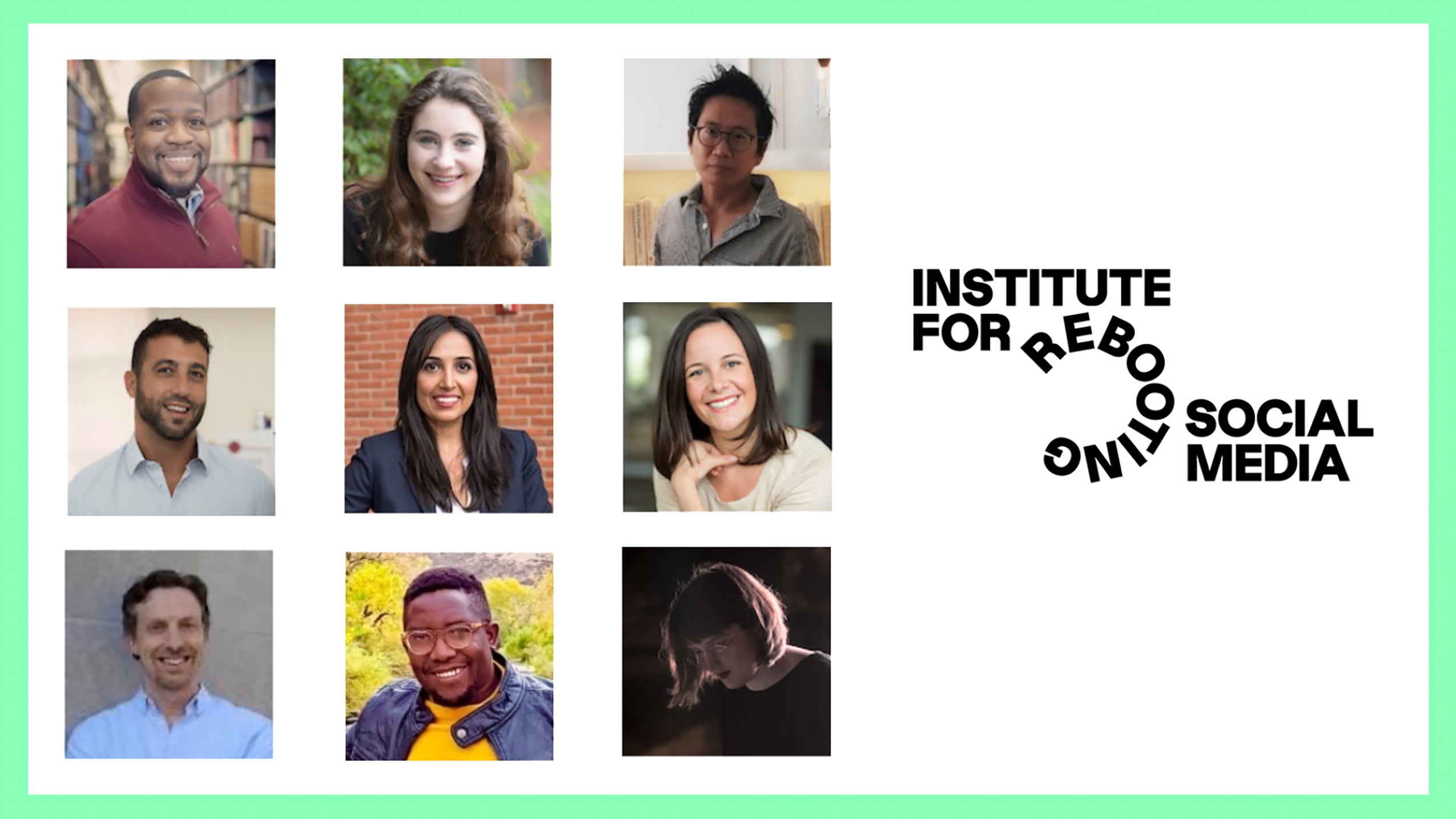An ambitious, three-year, “popup” research initiative, the Institute for Rebooting Social Media is designed to accelerate progress addressing social media’s most urgent problems. Conceived of by Professor Jonathan Zittrain ’95, George Bemis Professor of International Law and Professor of Computer Science, and James Mickens, Gordon McKay Professor of Computer Science, the Institute will convene world-class practitioners, policymakers, scholars, and students to improve the future of social media and online communication.
This year’s inaugural cohort of scholars — with disciplines ranging from law and philosophy to informatics and computer science — will use their time during the 2022-2023 academic year to collaborate with one another on existing work and begin new lines of inquiry.
“So many of us are brainstorming what to do about the state of social media without even being in a position to well understand what it’s doing to us and where it’s headed,” said Zittrain, who serves as co-director of the Institute for Rebooting Social Media. “This extraordinary group of scholars represents some of the best efforts to deftly apply rigorous academic thinking to complicated and fast-moving phenomena, with an eye towards interventions that help without making anything else worse.”
The nine scholars — Joanne Armitage, Ibtissam Bouachrine, Jabari Evans, Greg Gondwe, Kate Klonick, David Nemer, Yong Jin Park, Jon Penney, and Elissa Redmiles — have been doing pioneering research into social media and the prospects for interventions to improve it.
With the Institute, these scholars will focus on various topics, such as the decolonization of social media companies in sub-Saharan Africa, online disinformation related to Brazil’s 2022 general elections, and digital violence against Muslim women.
“We are thrilled to officially welcome our first Visiting Scholars into the Institute’s growing community,” said Mickens, co-director of the Institute for Rebooting Social Media. “We look forward to learning with them and engaging areas of shared concern, including digital governance, freedom of speech, privacy, community-based infrastructure design, and online inequality and discrimination.”
The Visiting Scholars will spend a portion of the academic year in residence at the
Berkman Klein Center’s new home in the Reginald F. Lewis Law Center at Harvard Law School. In addition to their own projects, scholars will work with Harvard students, staff, and affiliates, and the broader Berkman Klein community, with the goal of producing research that is both academically rigorous and accessible to diverse audiences.
The Visiting Scholars Program is part of the Institute for Rebooting Social Media’s larger portfolio of programming, research, and educational opportunities. The program will run annually throughout the three-year duration of the Institute, strengthening the community of interdisciplinary scholars tackling the most challenging problems of social media.
About the Visiting Scholars:
Joanne Armitage is a lecturer in Digital Media in the School of Media and Communication at the University of Leeds. Her work examines the impact of digital technology on community-building and activism. Her research at the Institute will explore how social media technologies can be re-imagined through low, slow and no technology practices.
Ibtissam Bouachrine is a professor at Smith College. Her current research interests lie at the intersection of technology, ethics, law, and women’s rights in Muslim-majority societies. As a visiting scholar, she will research a book project tentatively titled, “The Digital Lives of Muslim Women.”
Jabari Evans is a Hip-Hop artist (p.k.a. Naledge) and assistant professor at the
University of South Carolina. His time at the Institute will be spent on two projects: In his first project, he will work on “(Clout)chasers” (Lexington Books, forthcoming), a collection of empirical papers which deal with how Black youth face discrimination in creator culture and social media entertainment despite holding tremendous creative capital in their communities. For his second project, Evans will develop and produce a podcast that interviews scholars and influencers on issues of race in creator culture.
Greg Gondwe, an assistant professor of journalism studies at California State University–San Bernardino, is joining the Institute for Rebooting Social Media to explore how social media influencers in Sub-Saharan Africa are “decolonizing and outsmarting” digital media platforms. His work will examine questions of digital governance, surveillance, censorship, algorithms, and resistance.
Kate Klonick is an associate professor at St. John’s University Law School and a fellow at the Brookings Institution and Yale Law School’s Information Society Project. Her research on online speech, freedom of expression, and private governance has appeared in the Harvard Law Review, Yale Law Journal, The New Yorker, New York Times, The Atlantic, The Guardian and numerous other publications.
David Nemer is an assistant professor in the department of Media Studies at the
University of Virginia. He is the author of “Technology of the Oppressed” (MIT Press, 2022) and “Favela Digital: The other side of technology” (Editora GSA, 2013). During his time with the Institute, Nemer will be developing an infrastructure to monitor and analyze online disinformation campaigns that are taking place during this election year in Brazil.
Yong Jin Park is a professor in the Communication, Culture, and Media Studies Department at Howard University. His research at the Institute for Rebooting Social Media will focus on algorithmic bias, diversity, and personal data use, with a focus on the creation, governance, and economics of social media algorithms.
Jon Penney, an associate professor at Osgoode Hall Law School, is a legal scholar and social scientist with expertise at the intersection of law, technology, and human rights. His work at the Institute will examine the impacts of legal and platform-based efforts to protect privacy in the broader context of debates around platform power, responsibility, and regulation.
Elissa Redmiles is a faculty member and research group leader at the Max Planck Institute for Software Systems. Her award-winning research uses a variety of computational, economic, and social-science methods to study safety in digital systems. Redmiles focuses on designing solutions to ensure digital safety for all, especially those from marginalized groups. At the Institute she will focus on foundational research to design more respectful privacy technologies that align human values with technical privacy protections.
